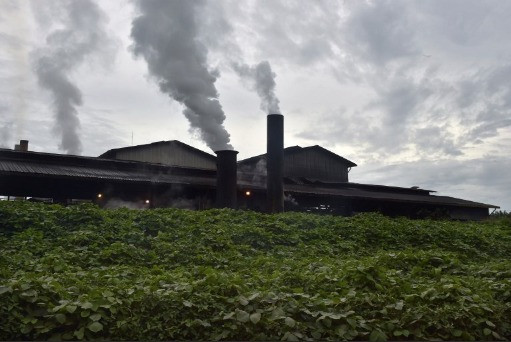Popular Reads
Top Results
Can't find what you're looking for?
View all search resultsPopular Reads
Top Results
Can't find what you're looking for?
View all search resultsPalm oil plantation-less mills lead to increase deforestation
The mushrooming in operations of the so-called berondolan CPO mills has often stirred social conflict, illegal opening of oil palm plantations and even crop thefts and looting.
Change text size
Gift Premium Articles
to Anyone
M
ost parts of Indonesia have been experiencing hot weather over the past few days with the Meteorology, Climatology and Geophysics (BMKG) reporting hottest temperatures in the outskirts of Jakarta of between 37 and 41 degrees Celsius.
Whether we see the phenomenon as a heat wave or just seasonal hot weather with the coming dry season, we cannot help but conclude that the scorching heat is part of the impact of climate change, especially as Indonesia is far behind on its target of implementing its just transition program. This means Indonesia remains one of the world’s biggest carbon dioxide emitters. And when it comes to greenhouse gas emissions, we immediately remember deforestation or slash-and-burn farming practices.
The fear of deforestation also has resurfaced with the announcement of president-elect Prabowo Subianto’s program to increase the production of palm oil-based biodiesel from B30 to 40 and 50 (meaning diesel fuel containing 50 percent of fossil diesel fuel and 50 percent fatty acid methyl ester or FAME) from palm oil.
Even though Indonesia is now the world’s largest producer of palm oil with an annual output of more than 50 million tonnes a year, the planned increase in the use of palm oil for biofuel will require the further expansion of palm oil production with an increased risk of deforestation.
The government and big palm oil companies have significantly improved the sustainability standards of the oil palm cultivating business, but the steady expansion of oil palm estates has been cited as the main culprit behind deforestation in the country.
The risk of deforestation within the palm oil industry has been attributed to the steep increase in the number of crude palm oil (CPO) mills, which have been built without an adequate fresh fruit bunch (FFB) supply from their own oil palm plantations. These mills are locally known as berondolan (plantation-less) mills because they buy or procure their FFBs from anywhere, whether from legal or illegal plantations or even stolen from big companies’ plantations.
The mushrooming operations of the so-called berondolan CPO mills has often stirred social conflict, illegal opening of oil palm plantations and even crop theft and looting. The mills incite the surrounding communities to grow on available land, including prohibited forest areas, given the high economic value of palm oil. Such continued new land clearance in forest areas has given palm oil a bad image as a driver of deforestation, rendering efforts to de-link palm oil and deforestation futile.



















